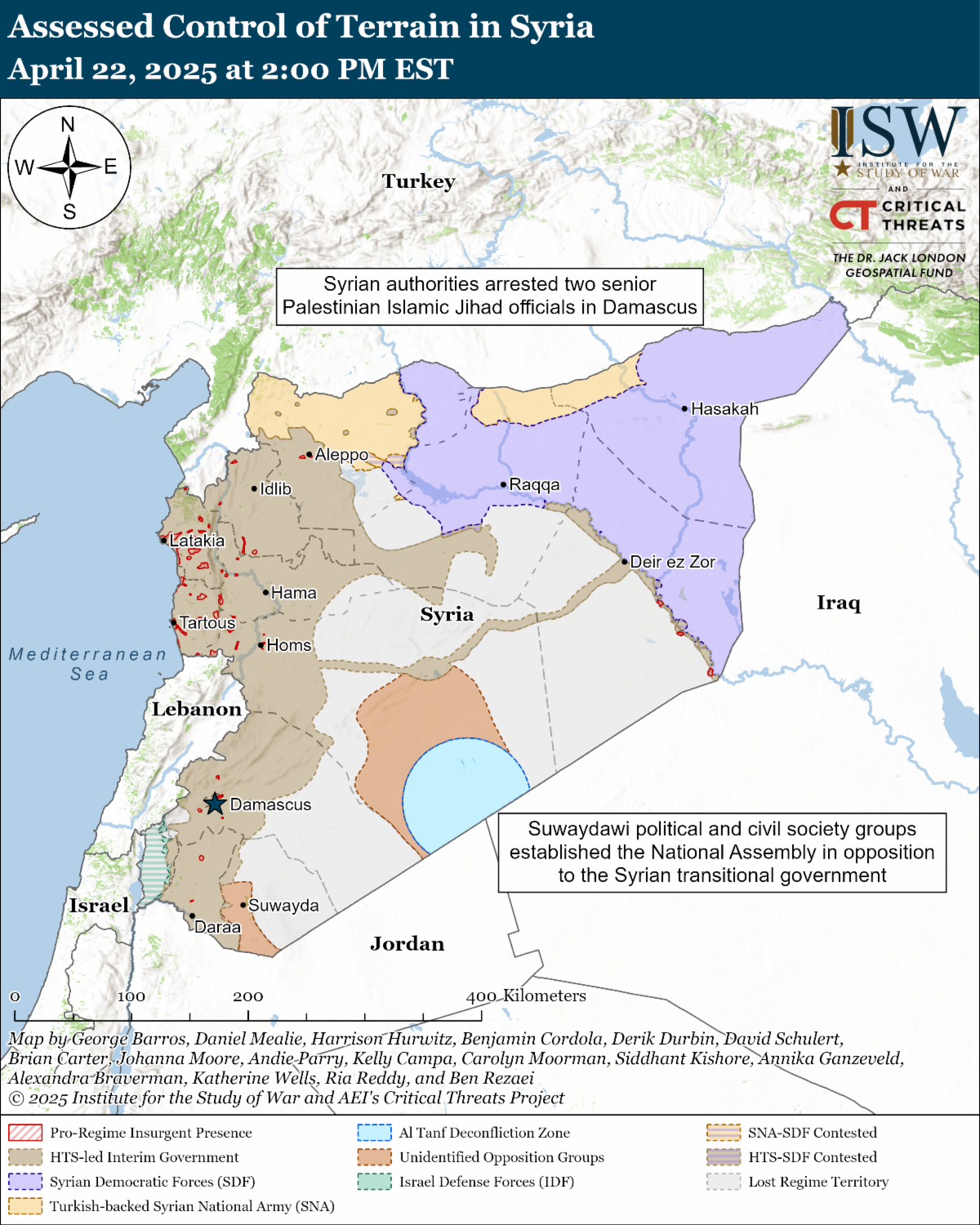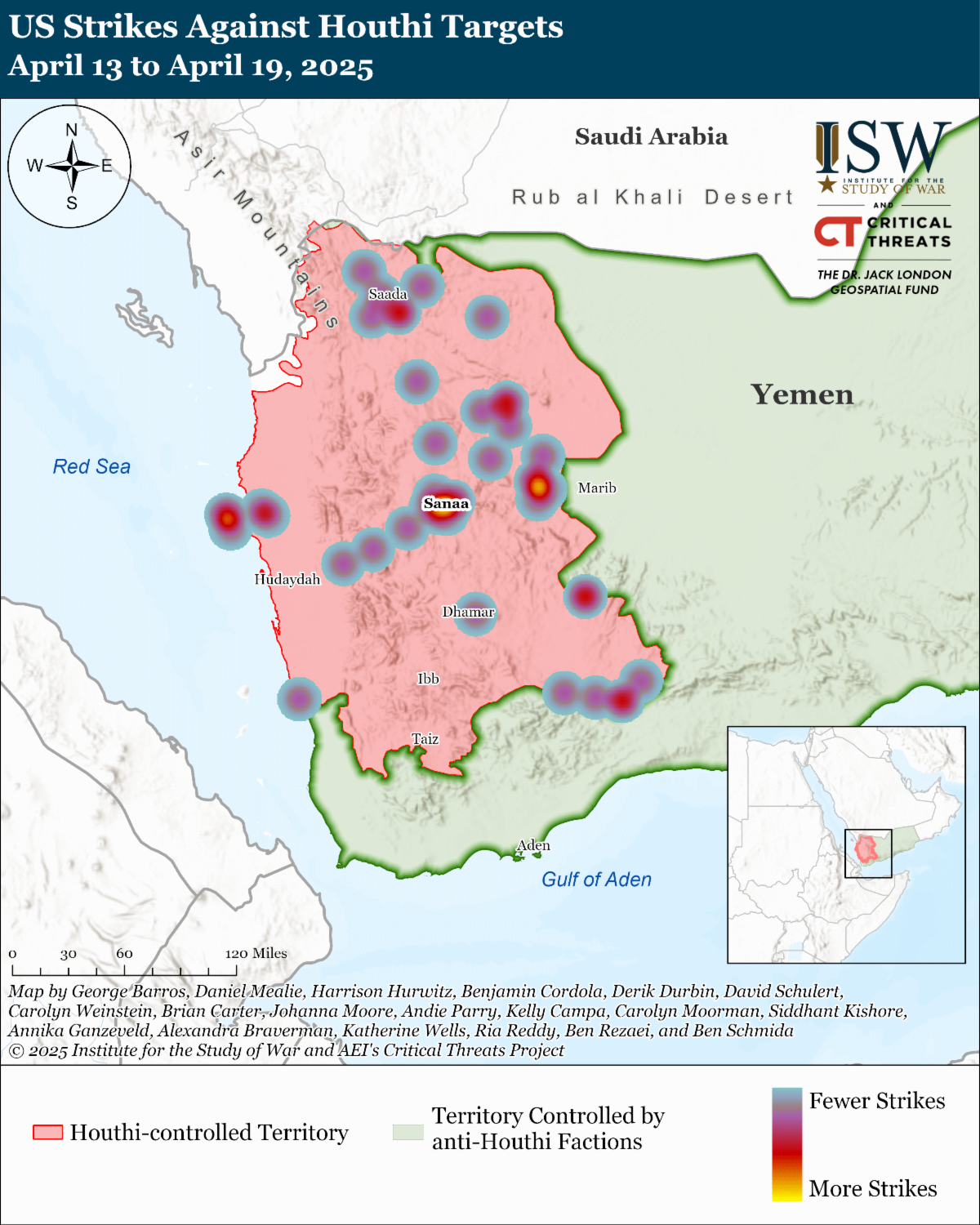Unspecified Iranian sources told a Qatari-owned, London-based outlet on April 22 that the US-Iran nuclear talks are progressing “beyond belief.” Iran could calculate that by framing the talks as positive, even if the reality does not match, Iran could delay a US or Israeli strike on Iran’s nuclear program or the imposition of snapback sanctions on Iran. The Iranian sources claimed that the United States, which was represented by US Special Envoy to the Middle East Steve Witkoff, did not demand complete dismantlement of the Iranian nuclear program and expressed approval to the principle of Iran’s right to enrich uranium during the nuclear talks. Unspecified Iranian officials told the Wall Street Journal on April 12 that Iran would be willing to reduce its uranium enrichment to 3.67 percent, which is the same level agreed upon in the 2015 Joint Comprehensive Plan of Action (JCPOA). The sources stated that they believe Iran and the United States will reach an agreement within the next two months. Iran’s negotiating team could calculate that presenting the talks as positive could enable them to continue the talks and thereby avoid negative consequences while still failing to make any serious concessions.
Former Iranian diplomat Abdolreza Faraji Rad also told the Qatari-owned outlet on April 22 that the upcoming US-Iran technical talks will focus on “enrichment levels and centrifuges.” Iranian Foreign Affairs Ministry spokesperson Esmail Baghaei confirmed on April 22 that the US and Iran agreed to reschedule the technical talks from April 23 to April 26 at the suggestion of Oman. Rad stated that the outcome of the technical talks would be presented to US Special Envoy to the Middle East Steve Witkoff and Iranian Foreign Affairs Minister Abbas Araghchi on April 26. The head of a Tehran-based think tank stated that the technical talks will focus on what to do about Iran’s reserves of 60 percent enriched uranium.
Syrian authorities arrested two senior Palestinian Islamic Jihad (PIJ) officials in Damascus after the United States requested that the transitional government expel Palestinian militants in exchange for partial sanctions relief. The General Security Services (GSS) arrested PIJ’s Syria Operations Commander Khaled Khaled and PIJ’s Organizing Committee head Yasser al Zafari in Damascus on April 19 and 17, respectively. PIJ released a statement on April 22 in which it asked “our brothers in the Syrian government” to release the two men. The Syrian Interior Ministry acknowledged the arrests but did not clarify why it arrested the pair. The United States reportedly asked the Syrian transitional government in mid-March to ”[crack] down on extremist groups” and end Palestinian political and militia activity in Syria in exchange for partial sanctions relief. It is unclear if the PIJ arrests are tied to this request, but Shara may view the pursuit of Palestinian groups with long-standing ties to Iran and the Assad regime as a compromise that would be favorable to the United States but also palatable to his Syrian constituents. The Assad regime has hosted Syria-based PIJ fighters over the years and allowed PIJ to base its headquarters in Damascus. It is unclear how many Palestinian militias currently operate in Syria, given that the Syrian government has largely expelled other Axis of Resistance militias, such as Lebanese Hezbollah, from Syria since the fall of the Assad regime in December 2024.
Key Takeaways:
- Iran-US Nuclear Negotiations: Unspecified Iranian sources told a Qatari-owned, London-based outlet on April 22 that the US-Iran nuclear talks are progressing “beyond belief.” Iran could calculate that by framing the talks as positive, even if the reality does not match, Iran could delay a US or Israeli strike on Iran’s nuclear program or the imposition of snapback sanctions on Iran.
- Palestinian Islamic Jihad in Damascus: Syrian authorities arrested two senior Palestinian Islamic Jihad (PIJ) officials in Damascus after the United States requested that the transitional government expel Palestinian militants in exchange for partial sanctions relief.
- Syria’s Legislative Branch: The new Syrian People’s Assembly may more closely resemble previous consultative or advisory councils used by HTS and other Syrian Islamist factions, rather than a Western-style legislative branch. The methods through which Shara will form the People's Assembly imitate how HTS elected the members of its Shura Council, and senior former HTS officials have explicitly compared a future Syrian parliament to a Shura Council.
- Political Opposition to the Syrian Transitional Government: Suwaydawi political and civil society factions established the “National Assembly” in Suwayda on April 19 in opposition to the Syrian transitional government.
| 





 [ISW] 이란 업데이트, 2025년 3월 4일
[ISW] 이란 업데이트, 2025년 3월 4일